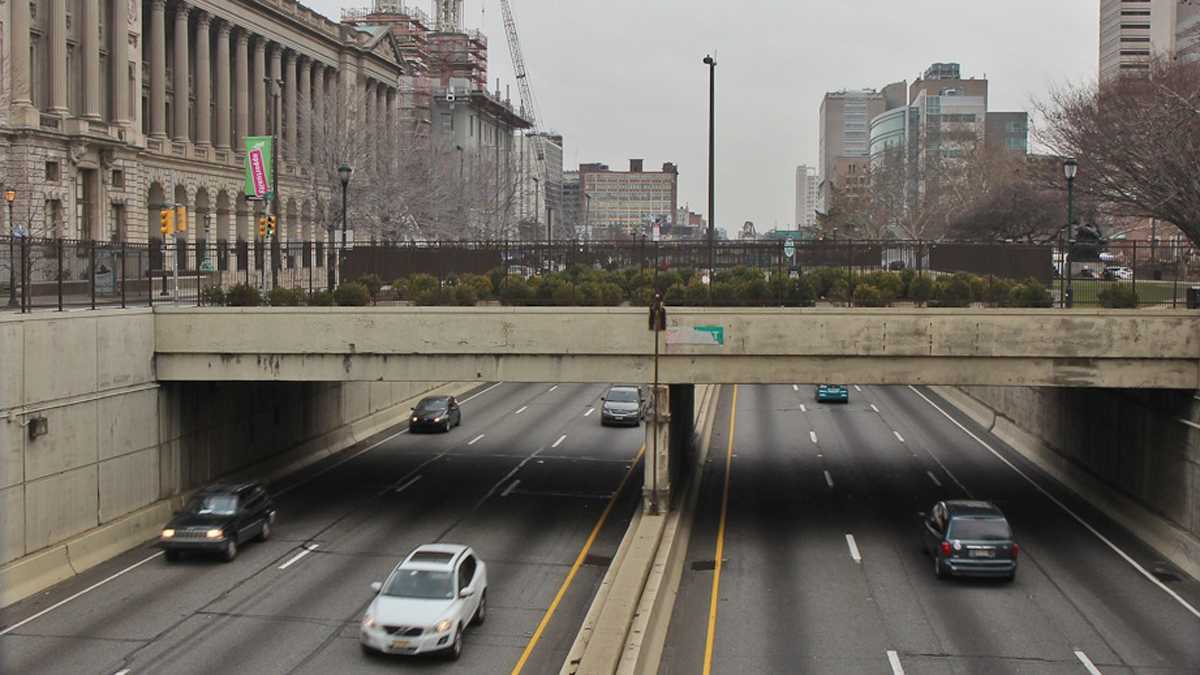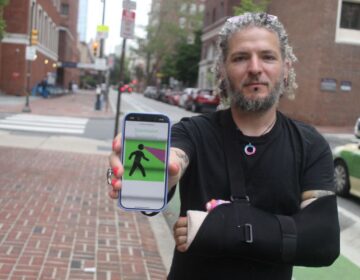Motorists challenge ticketing by Philly police on state roads

A lawsuit seeking class-action status accuses the Philadelphia Police Department of improperly ticketing motorists for speeding on interstate highways. (NewsWorks file photo)
Philadelphia attorney Jason Powell noticed something amiss when he was helping his friend beat a speeding ticket issued last year by a Philadelphia police officer: it occurred on Interstate 95, where city cops don’t have the authority to cite motorists.
“The prosecutor at the initial hearing said something along the lines of, ‘Hey, we do this all the time,’ when we raised the issue,” Powell said.
And that got Powell thinking. How often do city police issue speeding tickets on interstate highways, and why are they getting away with it?
So Powell on Thursday filed a lawsuit in the Philadelphia Court of Common Pleas against the city seeking class-action status to find out. His friend Mark Zych of Cheltenham is among three plaintiffs who allege that Philadelphia officers improperly handed out speeding tickets.
Zych’s ticket from last year was withdrawn after the officer who issued it told a judge at an appeal hearing that the city does not have the authority to police speeders on interstate roads.
Under a Pennsylvania law from 1976, it’s up to state troopers to ticket speeders on state highways unless there is a special speeding-enforcement agreement in place with local authorities.
But no such pact exists in Philadelphia.
In fact, a departmentwide memo from former Police Commissioner Charles Ramsey in 2012 reminded officers not to issue tickets on any of the interstate roads. If a Philadelphia cop spots a driver zipping by, the officer can stop the motorist, but must call state police to issue a ticket.
Nonetheless, according to the suit: “The PPD operates with a de facto policy of illegally stopping and citing motorists on I-95, I-76, and I-676.”
Those motorists, Powell argues, should have a voice.
“If they were forced to pay a ticket based on these representations that were false, they should be made whole for that,” he said.
Powell said he hopes the lawsuit will lift the lid on how often drivers are improperly ticketed across the city and trigger some policy change. Many motorists, Powell said, could be paying speeding tickets that really should be tossed.
“Certainty it’s much easier just to pay the $200. Hey, If your insurance goes up a little bit, whatever,” he said. “But in our case, we had to go to the Traffic Court four times. To a lot of people, that’s a hassle to take one day off of work, let alone four, just to go down there.”
City of Philadelphia spokesman Mike Dunn declined to comment on the suit.
DV.load(“https://www.documentcloud.org/documents/3149921-Class-action-v-City-of-Philadelphia-Speeding.js”, {
width: 600,
height: 600,
sidebar: false,
text: false,
container: “#DV-viewer-3149921-Class-action-v-City-of-Philadelphia-Speeding”
});
WHYY is your source for fact-based, in-depth journalism and information. As a nonprofit organization, we rely on financial support from readers like you. Please give today.



